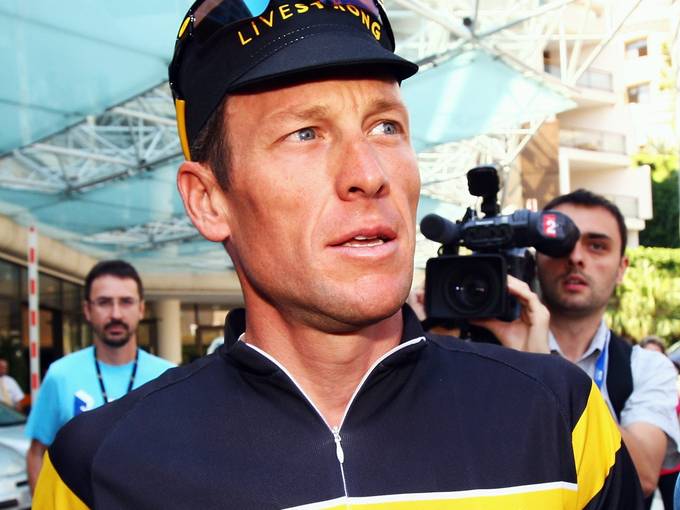The Livestrong Foundation was “caught in the crossfire” of the Lance Armstrong doping scandal but “absolutely” will survive misguided attacks on the charity’s credibility, the foundation’s executive vice president said in a speech Thursday.
“Our success has never been based on one person,” said Andy Miller, Livestrong’s executive vice president of operations. “It’s based on the (cancer) patients and survivors we serve every day.”
LAWSUIT: Feds join fraud case against Armstrong[1]
Miller gave Livestrong’s annual “state of the foundation” address Thursday in Chicago, telling the audience that the foundation was deeply disappointed that Armstrong “misled” his own cancer charity for more than a decade.
Miller even showed Twitter messages in which critics mocked Livestrong by calling it “Liestrong” or “Livewrong.” He called it a “difficult year” that “did not go as planned.”
But Miller said the foundation’s mission is separate from Armstrong, Livestrong’s founder, who stepped down from the foundation last year amid controversy that he cheated to win the Tour de France seven consecutive times.
The foundation, known for its iconic yellow wristbands, officially changed its name to Livestrong last year to distance itself further. Its previous official name was the Lance Armstrong Foundation, founded by the former cyclist in 1997 after he was diagnosed with testicular cancer.
“We didn’t do it for Lance,” said Miller, who gave the speech in place of Livestrong CEO Doug Ulman, whose arrival was delayed by inclement weather. “We did it for our loved ones.”
RELATED: Lance’s legal strategy vs. feds[2]
Miller noted Livestrong gets high marks from charity watchdogs. He said the charity ended 2012 with an “impressive revenue number… on par with our peers in the philanthropic community despite really challenging economic conditions.” According to the charity, Livestrong had $49 million in revenues in 2012, down 2% from 2011.
Miller also said the organization’s proudest accomplishment in 2012 was surpassing 1.5 million people served with free cancer support services.
Armstrong apologized to the Livestrong staff before he taped a nationally televised confession last month with Oprah Winfrey. After denying it for more than a decade, he said he used banned drugs or blood transfusions to boost himself on the bike from the mid-1990s — before his cancer — through 2005. He also said he engaged in doping during all seven of his victories of the Tour de France from 1999 to 2005 — titles that were stripped from him last year by the U.S Anti-Doping Agency (USADA).
As recently as last year, the jerseys from those victories adorned a wall at Livestrong headquarters in Austin — a shrine to a story that once inspired millions. But those jerseys since have been removed to make way for a memorial of Livestrong’s 15 years in operation. Additional fallout from Armstrong’s scandal is expected to be an ongoing issue for the charity for years, particularly as lucrative sponsorship contracts come up from renewal.
“Will Livestrong survive?” Miller asked. “Yes. Absolutely yes.”
He said “the need is too great for any other answer.”
References
- ^ http://www.usatoday.com/story/sports/cycling/2013/02/22/lance-armstrong-floyd–landis-department-of-justic-whistleblower-lawsuit/1935951/ (www.usatoday.com)
- ^ http://www.usatoday.com/story/sports/cycling/2013/02/25/lance-armstrong-false-claims-act-defense/1947651/?utm_source=feedburner&utm_medium=feed&utm_campaign=Feed%3A+newsmain2+(News+-+Flipboard) (www.usatoday.com)
